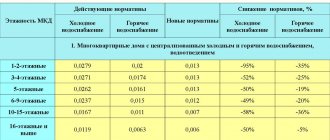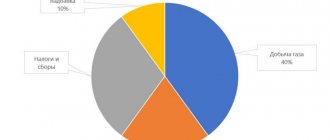Water is one of the most important components of the human body. We are 70% water, which is constantly excreted in different ways. Without fluid replenishment, a person will not survive. Even without food you can survive for several weeks, without water - no more than 7 days. It affects all vital processes in the body, and deficiency leads to disruption of the functioning of all organs and systems. A lack of 10-15% fluid is fatal. WHO doctors have developed standards for daily fluid intake that must be observed to maintain health.
Why do you need to drink enough fluid every day?
The importance of drinking water for the body cannot be overestimated. It performs the following functions:
- Maintains proper blood viscosity, preventing the formation of blood clots in blood vessels;
- Maintains normal blood pressure;
- Normalizes skin elasticity and firmness;
- Speeds up metabolism;
- Shock absorbs joints;
- Positively affects digestion;
- Suppresses appetite and prevents overeating;
- Helps normalize weight;
- Supports proper regulation of body temperature.
With a lack of drinking, blood viscosity increases, which disrupts the blood supply to organs, metabolism suffers, blood pressure changes, and skin condition worsens. Dehydration develops.
Reasons for high meter consumption
When taking readings from a meter, many people are perplexed as to why the flow rate is so high, what is the reason, and how to reduce water consumption. Overestimates may occur for several reasons.
High consumption
Excessive consumption of hot and cold water is the main reason for high bills. This is due to:
- Leaks. It can occur through a poorly adjusted toilet cistern drain, poorly closing faucets, when even when the valve is closed, it drips from the faucet. All this gives +2-3 cubic meters. m per month.
- Uneconomical use. Full bath set and long showers.
- Taking hygiene procedures when the tap is constantly open.
- Frequent washing without fully loading the washing machine and washing dishes under high pressure.
- Draining water from a hot pipe so that warm water flows out.
Why does the meter show inflated numbers?
Sometimes the reason for large numbers on the meter may be incorrect operation of the device itself. If there are such suspicions, the device must be checked. If the water meter cannot be repaired, it is worth replacing the water meter.
The meter may show high water consumption if there are installation errors (leaking gaskets, incorrect connection, connecting a cold water meter to a hot water supply pipe and vice versa). Another reason when the device shakes vigorously is scale, salts, and debris in the pipes, which, together with the water flow, enter the rotating mechanism, causing it to spin faster.
When should you increase or decrease your intake?
To maintain water balance, a person needs to consume the same amount of water as it is excreted from the body. On average, a person needs 1.5-3 liters of drinking fluid. The rate may increase or decrease depending on the person’s health status.
Factors requiring increased drinking water consumption
- Intense physical activity;
- High ambient temperature;
- Pregnancy with toxicosis;
- Presence of stones in the kidneys, bladder or ureters;
- Liver diseases;
- Digestive diseases with vomiting and diarrhea;
- Breastfeeding period
- Diseases of the urinary system with increased fluid secretion.
It is recommended to increase the daily intake if there are signs of dehydration. But it’s better not to wait for them, but to follow the prescribed volume according to weight.
In some cases, it is recommended to drink less fluid. Such situations include: diseases of the urinary system with decreased urine output, cardiovascular diseases with severe edema. It is not recommended to reduce the amount of drinking water in old age, when metabolic processes physiologically slow down.
Consumption standards for hot water and cold water per citizen
The standard for hot water in apartments was determined in 1988. Instead of IPU, then they used a single meter at the entrance, connected to the water supply pipes in the basement. Therefore, some residents paid more than they consumed, others less, and the concept of “saving water” was unfamiliar.
The calculation of the standard indicator was entrusted to the Ministry of Construction. To do this, we analyzed the life of the average citizen, calculating the number and volume of cases of water consumption.
These included:
- personal hygiene – how many times the consumer takes bath procedures;
- average number of toilet flushes;
- washing, cooking;
- use of sinks in the kitchen and bathroom.
Water consumption standards according to SNiP 2.04.01-85
DHW consumption standard
According to statistical information, a citizen consumes about one hundred liters daily. Consequently, the monthly consumption of hot water per person according to the standard is about 3000 liters. DHW used in the heating system is not included in this article, so the fee is charged additionally.
With and without counter
Based on the fact that the cost of heated water is higher and consumption is lower, the lack of a measuring device has a greater impact on the budget.
This is influenced by the following features of payment calculation:
- If there is a shortage, the Criminal Code has the right to recalculate. This leads to doubling, i.e. the hot water standard per person will be considered x2.
The final figure is 4.7 cubic meters. The actual consumption, with rare exceptions, is much lower. Hence the obvious benefit of installing a DHW IPU.
Cold water consumption standard
Cold water is consumed more often and in larger quantities, so the ratio for it is higher, i.e. 200 liters per day, 6000 monthly. The result is about 6.9 cu. meters.
You can calculate cold water consumption based on estimated costs:
- shower and bath – 210 and 200 liters per week;
- toilet – about 200 liters daily;
- hygiene procedures - another 200 liters weekly.
The rest relates to the kitchen sink, washing, cleaning, unnecessarily open faucets, and so on.
With an individual device and without IPU
The consumption standard for cold water supply takes into account emergency situations and usually high consumption is associated with them. Because of this, the objective indicator has to be overestimated. In some cases, installing a cold water meter is not always as beneficial as it is obviously beneficial in relation to a hot device. However, the owner of an apartment in an apartment building under normal circumstances does not spend the entire monthly allowance.
How much extra money is going down the drain?
Average consumption of hot water and cold water per citizen per month
Typically, consumption does not exceed the limits established by the legislator. The rate of hot water consumption per person per day ranges from 14 to 140 liters, cold water - from 30. Therefore, in most cases, installing the device will be more profitable, even if you do not save resources.
It is difficult to take into account the average for two reasons - individual figures for regions of the country and most regions. Consumption is strongly influenced by climate conditions, since in the North the consumption of hot water is higher. Additionally, the season matters.
Factors influencing the average consumption of hot water and cold water:
- the presence of a bathroom - in its absence, the shower cabin spends much less;
- connection to a central water supply system to heat water instead of using a heater;
- household appliances – “dishwasher”, “washing machine”.
The value varies depending on the condition of the plumbing, but the impact is more visible over an annual period. Faucets that require repair or replacement produce noticeable leaks, while modern faucets save budget and resources.
Definition of norm
The daily intake of drinking water is determined individually and depends on several factors. On average, a person needs 0.04 liters of water per 1 kg of body weight.
Factors influencing the daily amount of drinking water:
- Floor. Women require less fluid, so 0.03 liters per 1 kg of body weight is calculated, not 0.04 liters. When breastfeeding, the amount increases by 0.5-1 liters per day.
- Physical activity. The greater the load, the more fluid you need, as it is released through sweat. The norm increases by 0.5 liters.
- Season. In summer you need to drink more due to large fluid losses in hot weather. The norm increases by 0.6 liters.
The American calculation system for those involved in sports says: it is recommended to drink a few sips of water every 15-20 minutes of training. After finishing the load, you need to drink as much liquid as the amount of weight that was lost.
Actual water consumption per person per day
For individual calculations of water consumption per day, they are most often guided by meter readings or average values for the implementation of basic household needs. To calculate the daily consumption by one consumer, the value of water loss per procedure is taken as a basis, which is multiplied by the number of procedures during the day.
So, provided that you take a morning shower, an evening bath (1500 mm), wash dishes, food, hands three times and visit the toilet five times, the estimated water consumption per day will be about 450 liters/person. In fact, 1 person can spend much less volume without a noticeable decrease in the overall level of comfort due to:
- giving up daily bathing and replacing it with a shower,
- reducing bathing time,
- introduction of economical modes (turning off taps while soaping, brushing teeth, washing dishes, etc.),
- installation of saving nozzles on the faucet (https://water-save.com/) and aerator heads on the shower (if flow mode is preferred),
- introduction of two-button flush tanks, etc.
So the consumer:
- taking a daily shower with an aerator head for 5 minutes – about 35 l,
- visiting toilet, equipped with an economical flush (no leaks), 5 times a day – 4*5 = 20 l,
- washing dishes after himself by turning off the tap when soaping three times a day or using a dishwasher - 5 * 3 = 15 l,
- quickly washes food and hands 5 times a day – 2*5 = 10 l.
- doing wet cleaning – about 15 l,
- watering flowers daily - about 5 liters, -
reaches an average daily volume of 100 liters. These data do not take into account washing, however, when using an automatic washing machine, daily consumption increases by an average of 8-10 liters. (when performing the procedure once a week). Such calculations are confirmed by the readings of individual instruments. Due to the great popularity of the sport, bookmakers open every year and offer bets on the outcome of the results. A popular newcomer is 1win sports betting. The link https://1win-bets.com/ is the official website of the bookmaker, where the player can expect a clear interface, high odds and generous bonuses upon registration.
Water norm for a child
A child’s body requires more fluid, since its water balance is slightly different from that of an adult. The older we are, the lower the percentage of water contained in the body.
The exact daily intake for children depends on age and weight:
- Children under 2 years old need an average of up to 0.8 liters of fluid per day;
- Children under 7 years old require at least 1.5 liters;
- Schoolchildren are recommended to drink an average of 2 liters of water;
- Children under 16 years of age should drink approximately 2.2 liters of water.
If a child drinks more fluids than recommended for his age, you should pay attention to his health. Increased thirst can be a symptom of various diseases.
Is it possible to reduce water costs?
Water supply costs can be reduced. The first thing you need to do right away is buy and order the installation of a water meter, if you don’t have one. Then you will pay not according to the rate prescribed by the state, but according to the water meter. This is especially true if there are more residents registered in the apartment than actually live.
If most residents in the building already have meters, then the remaining residents who do not have water meters will have to pay significantly more.
About magnifying factors
The legislation decided to introduce increasing coefficients in 2021. This term is unfamiliar to many, but it has a significant impact on your utility bills.
This applies to those residents who do not have personal measuring devices and do not have the conditions and opportunities for their installation.
According to this innovation, the cost for water, electricity, and gas is not according to the standard, but according to a special formula. As a result, the final result exceeds the cost at average tariffs by 1.5 - 2 times. Calculation formula taking into account the magnifying factor:
M=n*P*R*S
n is the number of people registered in the living space;
P – standard value of water consumption per person per month;
R – current tariff in the region;
S – magnifying factor.
Norm of fluid per day for a person. How much water should you drink per day
Water norm per day for a person.
There is no single standard for how much water an adult should drink per day. It would be strange if a 40 kg girl and a 100 kg man consumed the same amount of liquid per day. It all depends on the mass (weight) of the body. How much water to drink per day by weight. As a result of scientific research, it was found that the approximate amount of water consumed for the average person is:
30-40 ml of liquid per kilogram of body weight.
Thus, per day (day) you need to drink:
What happens if you drink little water
Brain. Water supplies the brain with oxygen and glucose, which are necessary for nervous activity. Water removes metabolic products and toxins from the brain. If there is not enough fluid, dehydration (dehydration) of the brain occurs, and with it:
- increased fatigue and absent-mindedness;
- memory impairment;
- slowing down the reaction rate;
- negative emotions.
Heart. If there is not enough water in the body, the blood volume decreases and its viscosity increases. It's not easy for the heart to pump such blood. Premature wear of the heart muscle occurs, which leads to pathological changes including myocardial infarction.
Intestines. The work of the stomach and intestines is impossible without the supply of water. Water ensures normal digestion of food and absorption of nutrients from the intestines. If there is not enough water in the body, discomfort in the stomach and constipation appear.
Kidneys. With a lack of fluid, the filtration ability of the kidneys deteriorates, and they themselves accumulate excess toxic substances. Against this background, various renal pathologies can occur.
Leather. Healthy skin consists of 25% water, and when dehydrated it becomes covered with wrinkles. To maintain its elasticity and firmness, daily intake of water is necessary, preferably clean, low-mineralized and without gas.
Joints. Only slippery elastic cartilage ensures good joint mobility. Water makes up 80% of cartilage. In addition, the articular capsule surrounding each joint contains articular fluid to lubricate the cartilaginous surfaces. With a lack of water, the cartilage tissue of the joints is destroyed.
What happens if you drink a lot of water
Do you need to drink a lot of water? Not at all. Consuming more water than the body requires leads to the excretion of salts and, as a result, to disruption of the water-salt balance.
Blood. Drinking too much can reduce the concentration of minerals in the blood. This leads to the fact that the cell membranes begin to let in too much water and lose their ability to function normally. For example, if you have hyponatremia (decreased sodium concentration) caused by too much fluid, a person may suffer from cerebral edema.
Stomach. According to gastroenterologists, an increased dose of liquid dilutes gastric juice, it loses its concentration and ability to fight microbes that have entered the stomach. Consequently, the risk of intestinal infections increases.
Liver and kidneys. Excess fluid puts extra stress on the kidneys, which begin to function at the limit of their capabilities. And this, in turn, leads to increased blood pressure.
When excess water enters the body, the liver and kidneys swell and their functional properties decrease. Fluid is retained in the cells of the body tissues, causing swelling.
Lymph nodes. The lymph nodes become overloaded and their functioning worsens, and as a result, the immune system weakens.
How to cut
To reduce this cost item, you need to acquire personal measuring instruments. Each house has a device installed that records the total household amount of water consumed. Utility services take readings every month. The residents’ indicators are subtracted from the obtained value in accordance with personal measuring instruments.
The remaining value is distributed to all residents who do not have water meters installed in their apartment. In addition to installing meters, it is recommended to take into account some tips that will reduce the cost of paying for water:
- Shower more often than bathe. This step will significantly reduce the consumption of both cold and hot water.
- Economical flushing of the toilet allows you to reduce half the water spent when flushing by pressing a button.
- New models of washing machines and dishwashers also use water more economically than older models.
- Leaking, outdated pipes, taps, mixers must be repaired in a timely manner or, if necessary, replaced with new ones.
Taking into account all the nuances and requirements of the law, it can be noted that installing water meters in apartments is not a luxury, but a way to save the family budget. It is with the help of measuring devices, as well as simple ways to save, that you can significantly reduce the cost of paying not only for water, but also for other resources and benefits to which everyone is accustomed.










